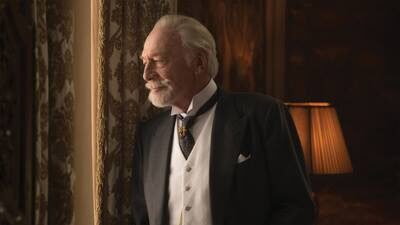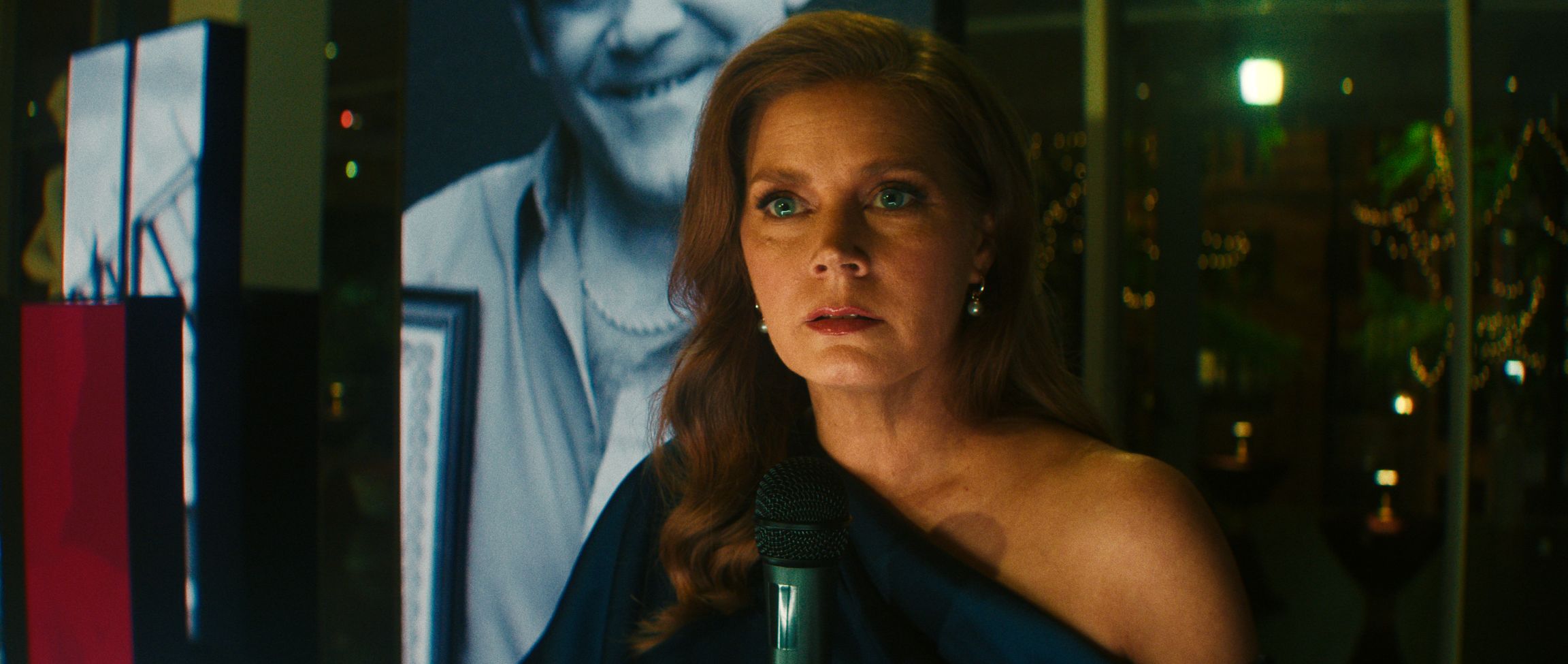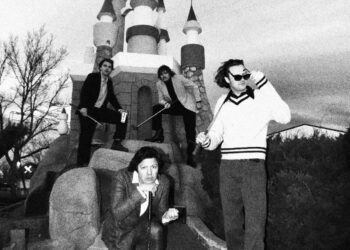Note: Viewed at the Tribeca Film Festival
I will always have a soft spot for anything related to World War II. The Second World War is one of the primary events or institutions that has truly and permanently shaped the modern world, for better or worse. I mentioned in a previous movie review some of my own personal family history regarding WWII, my Soviet Russian and Lithuanian Jewish ancestors fleeing to America or falling victim to Stalinist purges or Nazi concentration camps. Naturally I was intrigued by a movie involving a fictional romance story involving a good-natured German officer, a Dutch Jewish Resistance girl working undercover with the British Secret Service, and the last German emperor, Kaiser Wilhelm II.
The cinematic directorial debut of Tony Award-nominated British theatre/musical director David Leveaux, The Exception begins a short time after the German invasion of Holland. The former Kaiser Wilhlem II (Christopher Plummer) has been exiled to the latter nation since the end of the First World War. Concerned that Dutch and British spies may be watching over Wilhelm, Berlin assigns Captain Stefan Brandt (Jai Courtney) to take command of Wilhelm’s guard and expose potential spies.
At the Kaiser’s home, Wilhelm and staff welcome Captain Brandt and we learn early on that the spy is the new girl on the staff, Mieke de Jong (Lily James) because she’s the new girl, is shown early on to be hiding her Jewish religion, and is hiding a revolver.
Wilhelm’s wife, Princess Hermine Reuss of Griez (Janet McTeer) dreams of returning to Germany, thinking that perhaps the rise of the Nazi Party would be a ways to secure the monarchy’s restoration, as the German public would like that as a check on the party’s power. In real life of course Wilhelm had no desire to return to Germany unless the monarchy was restored.did see the Nazis as a “necessary fever” before his potential return to the throne, and despised socialism with a passion (the Nazi Party’s full name was “National Socialist German Workers Party). Wilhelm eventually grew to despise Hitler, proclaiming, after hearing of the execution of a wife of a former Chancellor, “We have ceased to live under the rule of law and everyone must be prepared for the possibility that the Nazis will push their way in and put them up against the wall!” In describing Hitler, “There’s a man alone, without family, without children, without God… He builds legions, but he doesn’t build a nation. A nation is created by families, a religion, traditions: it is made up out of the hearts of mothers, the wisdom of fathers, the joy and the exuberance of children… For a few months I was inclined to believe in National Socialism. I thought of it as a necessary fever. And I was gratified to see that there were, associated with it for a time, some of the wisest and most outstanding Germans. But these, one by one, he has got rid of or even killed… He has left nothing but a bunch of shirted gangsters! This man could bring home victories to our people each year, without bringing them either glory or danger. But of our Germany, which was a nation of poets and musicians, of artists and soldiers, he has made a nation of hysterics and hermits, engulfed in a mob and led by a thousand liars or fanatics.”
The movie is an engaging narrative regarding the relationship between Brandt, Jong, and Wilhelm, the hunt for the English and or Dutch spies, and Brandt’s own conflicted feelings regarding his loyalty to his country and his disgust with many of its leaders. Brandt does not seem to care about if anyone is Jewish or not, just in simply doing his job as a German officer, even trying to simply ignore turning in Jews if possible. Jong is determined to fulfill her mission and strike back at the occupying German forces who have stolen her family, her country, and her people, Jewish and Dutch, away from her. Both struggle against these feelings with their own romantic desires however.
Wilhelm himself of course is known for his anti-Semitism, believing in such things as a Jewish conspiracy to control England, France, and Russia among other Eastern European Slavic nations, in order to destroy Germany in a racial war. Wilhelm however was personally disgusted and outraged by the Kristallnacht (“Crystal Night” or “Night of Broken Glass”) and other anti-Jewish pograms in Germany, viewing these not as acts of protecting the nation but as the classic tactics of thugs and gangsters. Wilhelm said, “I have just made my views clear to Auwi [Wilhelm’s fourth son, Prince August Wilhelm of Prussia] in the presence of his brothers. He had the nerve to say that he agreed with the Jewish pogroms and understood why they had come about. When I told him that any decent man would describe these actions as gangsterisms, he appeared totally indifferent. He is completely lost to our family.” “For the first time, I am ashamed to be a German.”
Wilhelm in the movie retains much of these mannerisms and views of the Wilhelm of reality, even proclaiming agreement about a Jewish conspiracy during a visit from Heinrich Himmler (Eddie Marsan). However he is shown appropriately disgusted when Himmler mentions experiments on Jewish children, and how they slowly die.
The main reason to watch this movie, if for nothing else, is Christopher Plummer’s performance as Wilhelm! The one main difference between the movie’s Wilhelm and the real-life version, is his sense of humor! Wilhelm was notorious for having no humor about him. The movie just ignores that and Plummer seems to improv about 50% of his dialogue. The most exciting part of the movie was watching Plummer chew the scenery with his sharp tongue! It was so much fun to watch! Not once did any of his jokes fail to make the audience burst into laughter! An audience that watched this movie at the Tribeca Film Festival mind you! Plummer himself of course stated to us in the audience after the movie, when asked about his improv, “Well of course if we played it like in real-life, you all wouldn’t be sitting here!” Just as funny in real-life as in the film!
The Exception is a promising start to a film career for director David Leveaux. A compelling story of forbidden romance, conflicting loyalties, and a surprisingly humorous attitude. Leveaux clearly demonstrates the ability to force a great performance out of his actors and a guide a narrative. If for nothing else, you at least must watch this movie for Christopher Plummer! I hope that whatever Leveaux has for his next project involves Plummer, and that Plummer is offered more roles utilizing both his dramatic and comedic talents in equal measure!
Image from https://tribecafilm.com/

















